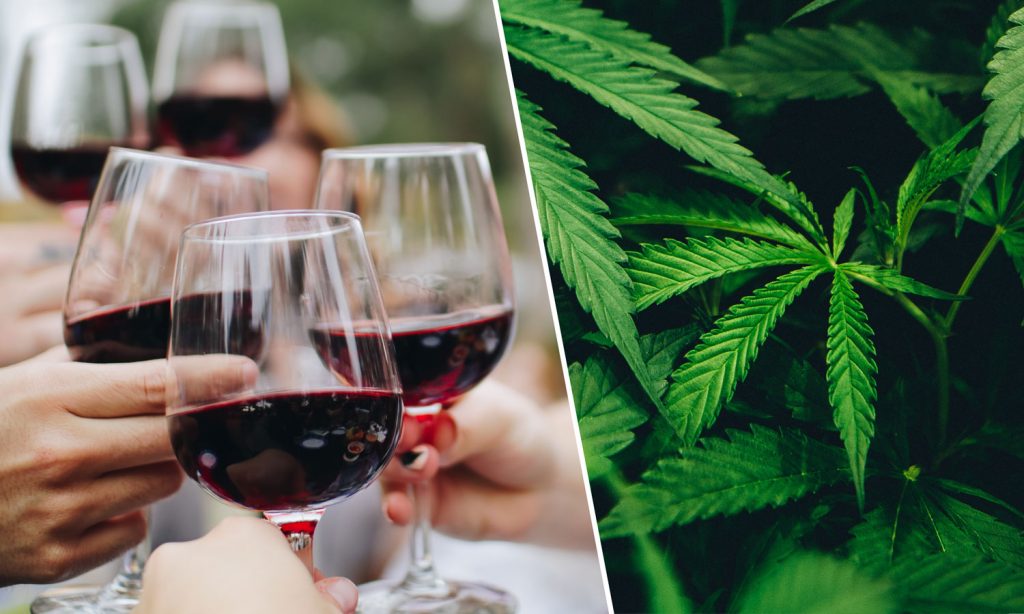
Wine vs. Cannabis: How Social Inequality Differs in Both Industries
As the cannabis industry evolves, it’s hard not to make comparisons to other industries that have become legitimate after years in the shadows. Among the first that come to mind is wine.
Given that the wine industry predates recreational cannabis by decades, it comes as no surprise that there is a degree of racism in the industry, just like in other industries. Unfortunately, much of the racism that existed when the wine industry began was still alive today.
Naturally, this leads many people to wonder how cannabis is different from the wine industry in this respect. While the cannabis industry is still young, all indications are that the cannabis industry will offer people of color more opportunities than wine. This is how cannabis differs from recreational cannabis from a social justice perspective.
Photo by Hermes Rivera via Unsplash
Entry barrier is higher
The high barrier to entry into the wine world is one of the main reasons for the lack of diversity within the industry. The process of earning the necessary certification to become a wine sommelier can cost hundreds of dollars, which inherently excludes people without that kind of disposable income — which, in most situations, is people of color. In the cannabis industry, it doesn’t take that much training to be a budtender or run a dispensary.
According to associate director of the Center for Effective Public Management at Brookings Institution, John Hudak, cannabis companies’ ability to stay true to their beginnings will be critical to ensuring the industry remains diverse. “Higher wines tend to be disproportionately white compared to other parts of the economy,” he explains. “Because the consumer base of cannabis is inherently more diverse than wine, it’s beneficial for them to stay true to their roots.”
As far as staying true to yourself goes, a big part of it means not turning every budtender who works in a dispensary into a sommelier, as some companies are probably tempted to do.
Recreational cannabis companies are actively seeking a diverse workforce
Another difference between recreational cannabis and the wine industry in terms of social justice is the fact that the cannabis industry actively recruits talent from a variety of backgrounds. “When you look at who will make a good budtender, you tend to think of younger ones rather than older ones,” says Hudak.
“While usage rates are the same between whites and non-whites, you can see the diversity of the workforce in pharmacies, particularly in California and Nevada. When you think high-end wines, you think high-end individuals,” explains Hudak, adding, “If you think about wine consumers, higher value wines tend to be disproportionately white compared to other parts of the economy.”
RELATED: Is the Cannabis Industry Racist?
The effort that recreational cannabis companies are putting into diversity is also illustrated by the fact that estimates are currently the Level of minority recreational cannabis entrepreneur owners at 23%, which is in stark contrast to the wine industry.
 Photos by: Kelsey Knight via Unsplash, Matthew Brodeur via Unsplash
Photos by: Kelsey Knight via Unsplash, Matthew Brodeur via Unsplash
Less than 1% of wineries are black-owned
Although wineries have rapidly grown in popularity since the end of Prohibition, there are still relatively few minority-owned wineries to show for it. That’s what a recent study found Black-owned wineries account for less than 1% all wineries in the country. On the other hand, another recent poll found that minority-owned businesses accounted for 19% of all respondents. While the number of minority holdings isn’t overwhelming, it does hold more promise than what the wine industry can offer.
RELATED: Why social justice matters to cannabis and what states are doing about it
What the recreational cannabis industry can do to ensure the continued growth of minority businesses, Hudak says, nothing will make or keep the cannabis industry diverse. “It needs to have a conscious conversation with itself to make sure it’s expanded and then maintained once it’s achieved.”
Whether the cannabis industry is able to achieve and sustain higher levels of diversity will be one of the most intriguing stories to watch in the space.

Post a comment: